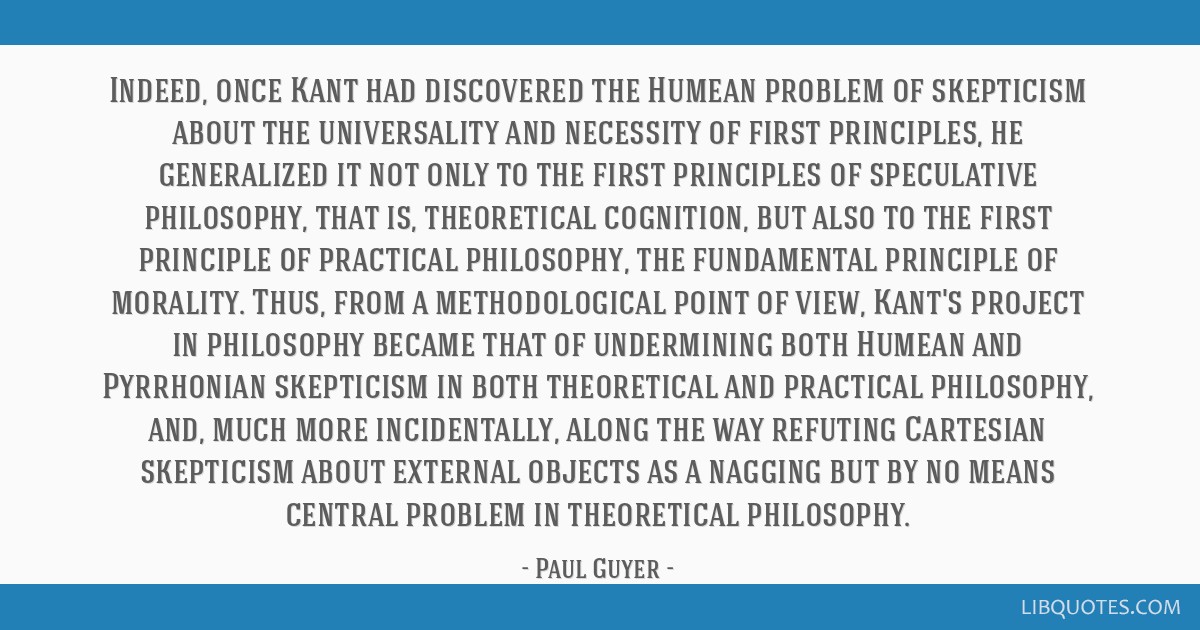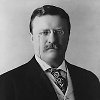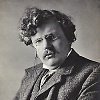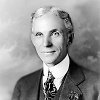Indeed, once Kant had discovered the Humean problem of skepticism about the universality and necessity of first principles, he generalized it not only to the first principles of speculative philosophy, that is, theoretical cognition, but also to the first principle of practical philosophy, the fundamental principle of morality. Thus, from a methodological point of view, Kant's project in philosophy became that of undermining both Humean and Pyrrhonian skepticism in both theoretical and practical philosophy, and, much more incidentally, along the way refuting Cartesian skepticism about external objects as a nagging but by no means central problem in theoretical philosophy.
Kant (2006; 2014) - Introduction























